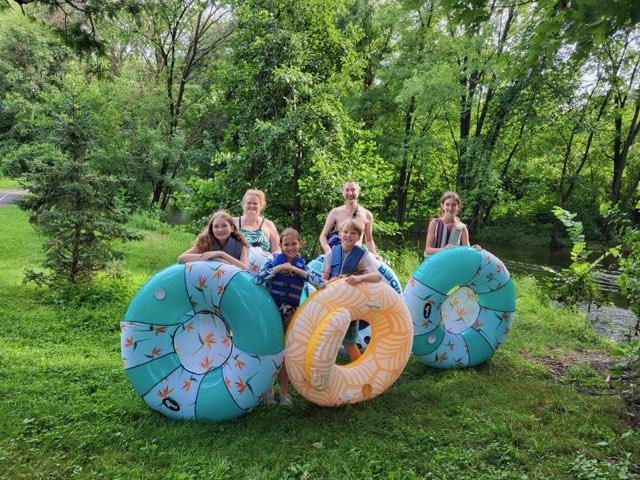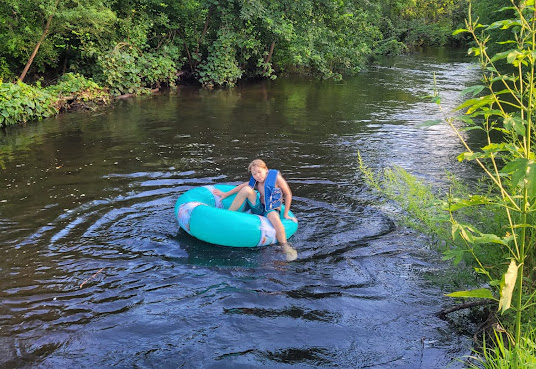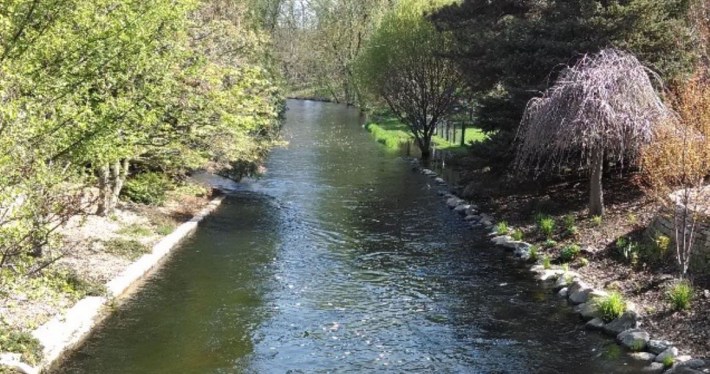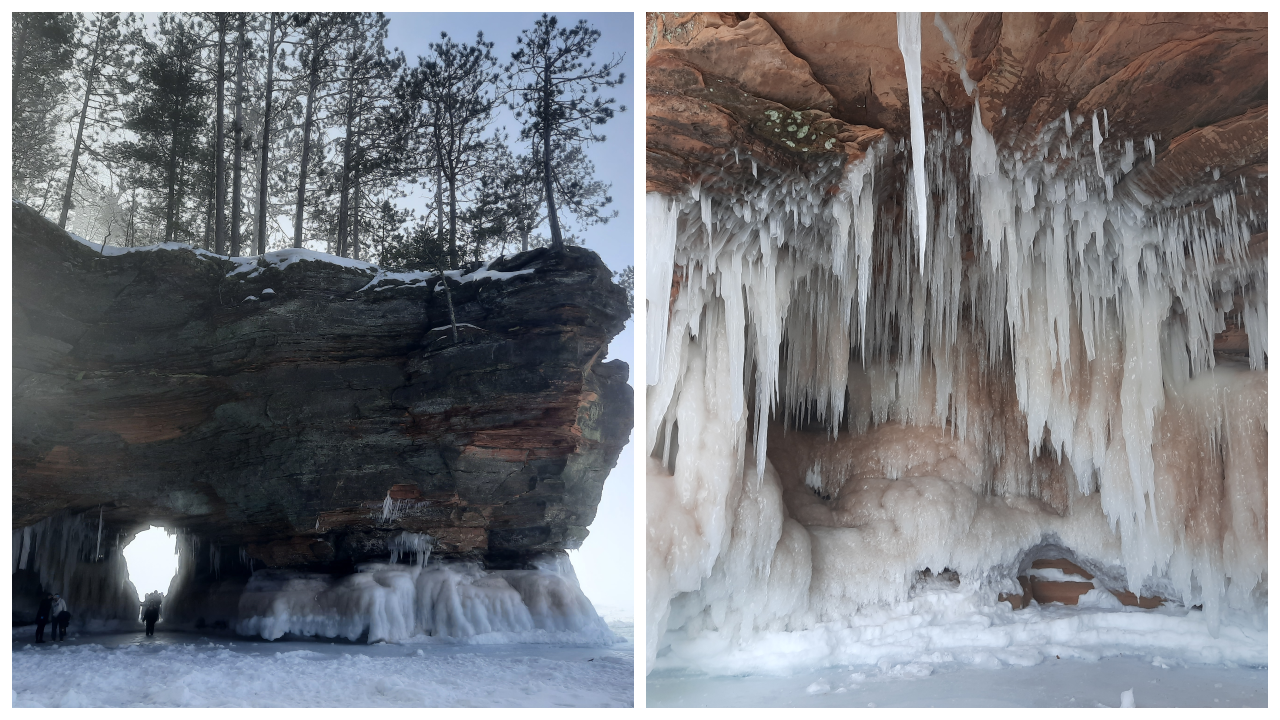If you ever consider tubing Minnehaha Creek, be warned: It’s way more intense than you might think. Let me tell you about an adventure I had this summer.
It all started when my sister, visiting from Southern California with her two daughters, shared some childhood memories of getting pulled on an inflatable tube across a Minnesota lake. My wife, inspired by her stories, suggested we take the kids tubing at the creek.
Our big inflatable tubes (on sale for $12.99 at the Bloomington Menards) were obnoxiously bright orange and periwinkle, but they would do. I filled them up in our Kingfield backyard using a Shop-Vac, a clutch move recommended by my sister.
We sunscreened, then packed some drinks and my Ziplocked phone in a soft lunchbox-sized cooler. The children, my two nieces and my son and daughter, all wore life jackets.
Our first challenge: transporting our rides to the departure area at the edge of Lynnhurst Park. We couldn’t fit the inflatables into the minivan, so we drove south on Lyndale, garish tubes dangling out the windows while my kids tried to convince their California cousins that Midwesterners weren’t always so embarrassing.

Upon arrival, I realized I had repressed how varied, wild, and knotty the creek is. Years ago, I took a trip down the Minnehaha in a canoe. We’d started in Edina, portaging through a couple dams, limboing beneath low bridge clearances. The branches flying at my head at some of the leafier stretches explained why my father-in-law, who was leading the charge, was wearing a pith helmet. At one point we even capsized.
On this tubing day, things looked more peaceful. The grassy area around Lynnhurst is pleasant and bucolic. The water was slightly cool and easy to enter.
The Minnehaha Creek Watershed District recommends waiting 72 hours after a rain, and to check the gauge near Hiawatha Avenue to see if the creek force is between the safe 75 and 150 cubic feet per minute. We heeded neither of these recommendations. I had assumed that you could tube safely down the creek so long as the forces of nature were respected. I was wrong. (Don't be like me: You can check for up-to-date safety assessments here, and the Friends of Minnehaha Creek FB page also has useful info, too.)
Those who've been to Minnehaha Falls have seen the water tumbling down with varied force depending on the season. That’s the creek being pulled. In the late 1880s, Horace Cleveland designed the parks around the creek to be a feature of the Grand Rounds. With the natural greenspaces and floodplains gone, the water has nowhere to go but rushing through, which means the current is now faster than if the creek had been left alone. On this day, stronger sections of the creek pushed us up on embankments, into parts of trees, and against concrete edges. One wrong crash could have sent someone to the hospital.

I tried not to worry about my daughter and younger niece, as my wife was keeping track of them in the rear. I was in charge of my son and older niece. I led the group, floating ahead of everyone so I could try to ensure any fallen trees, jutting limbs, or other dangers wouldn’t hit anyone.
Since I kept losing sight of our crew, we created a system. I would grab a tree branch every time we hit a bend, holding on as the current pulled. When one of the kids got within view, I would yell at them to paddle to the side and grab a branch like I was until the next person caught up. Sometimes this worked. Sometimes they kept going, and I’d have to paddle hard to stay ahead. My older niece was more terrified of “water spiders” than the current itself. But every time she spun around a corner, or dipped toward the suction of a tree, I felt my pulse quicken.
During calmer moments, we had a chance to gain a new perspective of Minneapolis. The surrounding infrastructure of the creek ranges in origin, from the 19th century work to the WPA-era to the '90s. At points our ride was beautiful, lined with old tree canopies that offer natural shade, charming stone bridges, and a relaxing ambience. But know that there are also portions featuring direct sunlight, crumbling concrete abutments and granite walls, and highway underpasses with cars rushing above, unaware of the travelers below.
I had estimated that our journey down the creek—about four miles from Lynnhurst Park to 16th Street, near my in-laws—would take 20 minutes or so. It took an hour and half. While we felt like we were rushing quickly down the creek, we traveled along our winding journey at a rate slower than car or bicycle.

I wasn’t sure I’d recognize our stopping place, so I climbed out a few blocks early, running down the sidewalk like a maniac with my tube under my arm. I was especially desperate to catch my older niece and son, who had floated down and over from our exit. Thankfully, they managed to make their way to land.
My wife, daughter, and younger niece caught up with us on foot. Along the way, my youngest niece’s tube had punctured, losing air until it no longer worked. When my wife turned around the bend, she found her standing atop a fallen tree. It was the end of the creek ride for them.
We met up mud-splashed, exhausted, and in good humor, with the added tang of urban run-off water scenting our skin. We had made it through our tubing day at Minnehaha Creek mostly unscathed.







